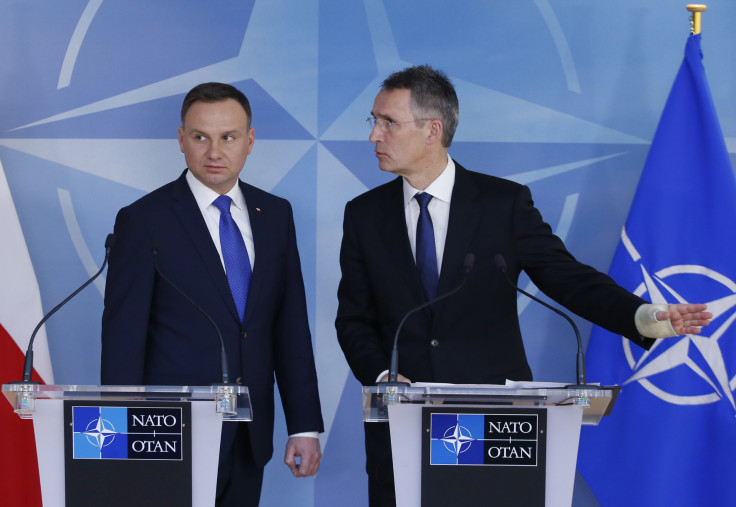Amid Russian Aggression, Germany Calls For Russia-NATO Talks And Poland Asks For More Troops

As Central and Eastern European states remain nervous over Russia’s actions in Ukraine, Germany’s foreign minister has called for the Kremlin and NATO to hold more talks, Russian state-owned media reported Tuesday. The call comes after Poland urged NATO to deploy more troops and equipment in the region due to Russian threats.
“We need a greater number of channels for negotiations to avoid misunderstanding,” said German Foreign Minister Frank-Walter Steinmeier. He spoke of the possibility of reviving the NATO-Russia Council that was suspended in April 2014 after Russia's annexation of Crimea from Ukraine and military intervention in the region. The council, established in a 1997 agreement, allowed Russia and NATO to discuss sensitive security matters. In 2007, the U.S. used the council to reassure Russia over the positioning of a missile defense system in Poland.
Steinmeier’s call came a day after Polish President Andrzej Duda called for an increased NATO presence in Central and Eastern Europe, a move Germany fears could further antagonize the Kremlin. “Today, everything points to the need to have substantial presence of both infrastructure and military units on the ground in Central European countries, as well as a well-worked-out system for these units and defense should there be any act of aggression,” Duda said Monday. “I would want it to be permanent to the greatest extent possible.”
Duda called for increased joint military exercises with NATO, as well as developing contingency plans in the event of a future attack in the region. Poland and other Central and Eastern European states have called for greater NATO presence in the region since Russia’s annexation of Crimea from Ukraine in March 2014 and the ensuing war in eastern Ukraine that has pitted government troops against Russian-backed separatists and left more than 9,000 people dead. NATO officials are scheduled to meet in Warsaw in July for a summit.
“NATO now has a persistent military presence in the region, of which Poland is part. And I trust that after the Warsaw summit we would see more NATO in Poland than ever before,” said Jens Stoltenberg, secretary-general of NATO.
NATO held its largest military exercise in more than a decade in October. Russian President Vladimir Putin has long accused the alliance of encroaching on the Kremlin’s sphere of influence. The alliance's potential expansion was openly named as a threat in Russia’s newest national security strategy.
© Copyright IBTimes 2025. All rights reserved.






















